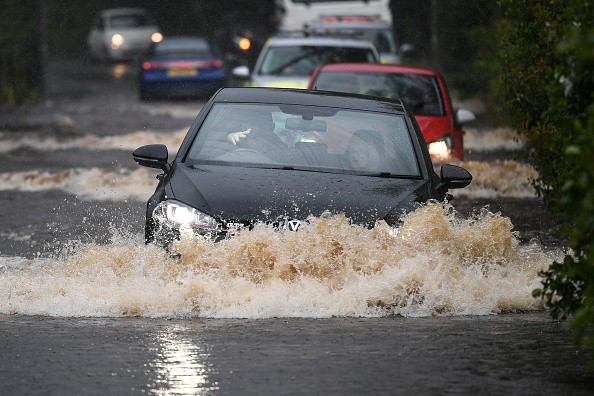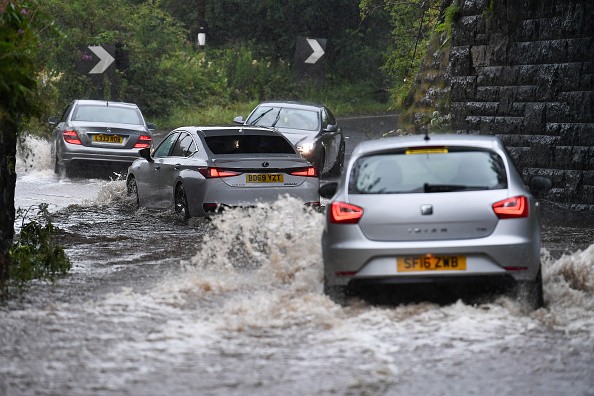After a short period of heavy rainfall over Richmond, Virginia, within the span of just a few hours, the fire department of the city responded to over a dozen calls of vehicles in high water and saved 19 people on Wednesday.

The Rescue
Between 4:27 and 5:22 p.m. EDT most of the crews were dispatched, and while 17 people were saved around that interval, another two were rescued later that evening, the Richmond Fire Department noted. Video from the fire department reveals a crew member assisting a motorist from the roof of their car into a pumped-up boat during one rescue.
The floodwaters were almost up to the engine of the car, submerging the front headlights completely. AccuWeather Meteorologist, Maxwell Gawryla said: "Richmond, Virginia, received an extraordinary amount of rain all through the day Wednesday,"
"Interestingly, the rain was heavily restricted with observations across the area ranging from about 1.3 inches to an incredible 3.34 inches at Richmond/Chesterfield County Airport. "He added that this rainfall wasn't dispersed all through the day but instead it took place over the course of four hours.
Rainfall at Chesterfield County Airport
Over half of the rainfall recorded at Chesterfield County Airport - 2.87 inches - took place between 4 p.m. and 5 p.m., approximately aligning with the period Richmond's fire department got their calls for rescue. While the heaviest rain across Virginia had departed from the coast as of Wednesday evening, Gawryla said the situation will persist through the next few days.
Gawryla said deep moisture over the region through the rest of the week accompanied with a few weak upper-level disturbances will allow for persistent widespread showers and thunderstorms all around the state, this generally moist pattern will begin to change early next week when high pressure starts to build into the northeast and moisture is forced out of the area.

Flooding
Floods are the most frequently occurring type of natural disaster and they usually take place when an overflow of water submerges land that is dry. Floods are often brought about by heavy rainfall, swift snowmelt or a storm surge from a tropical cyclone or tsunami in coastal areas.
Floods can lead to widespread devastation, causing loss of life and destruction of personal property and critical public health infrastructure. Floods affected over 2 billion people worldwide, between 1998-2017. People who inhabit floodplains or buildings that are non-resistant, or lack warning systems and awareness of flooding hazard, are most susceptible to floods.
Between 80-90% of all recorded disasters from natural hazards during the past 10 years have been due to floods, droughts, heat waves, tropical cyclones, and severe storms. The frequency and intensity of floods are also increasing, and the frequency and intensity of extreme precipitation is anticipated to continue to increase because of climate change.
For more news, updates about flooding and similar topics don't forget to follow Nature World News!
© 2025 NatureWorldNews.com All rights reserved. Do not reproduce without permission.





